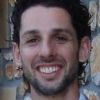
Nikos Thomopoulos
- Course: PhD in Transport Economics and Policy
- Year of graduation: 2010
- Nationality: Greek
- Job title: Researcher
- Company: ITS, University of Leeds
Currently, I am working as a researcher in ITS within a flagship EU funded research project focusing on the contribution of Information and Communication Technologies to sustainable urban transport. My daily routine includes the organisation of interviews and focus groups, data collection and analysis, interaction with stakeholders and liaising with project partners. However, I tend to enjoy it more when attending project meetings with the rest of the eight partner organisations from around Europe, particularly because they have diverse academic and industrial expertise leading to stimulating debates. The remainder of my time is devoted to gaining teaching experience, organising workshops and writing up reports and publications, all of which are useful for aspiring academics.
Since my arrival at ITS, I have realised the wealth of opportunities here to develop skills in transport research. The fact that ITS is an Institute, rather than a typical university department, means that PhD students benefit directly by the research environment unlike other academic institutions in the UK or elsewhere, as they have the opportunity to participate in Research Group or Departmental meetings. Having acted as a Research Students’ Representative has also allowed me to gain a good insight into how large UK universities operate and what challenges they face.
ITS has been instrumental in providing a range of training opportunities which has helped me develop various skills which I am using in my current post. The Stated Preference or Transport Investment Appraisal short courses, the International Choice Modeling Conference, the various informal seminars about conducting surveys, publishing research or utilising new technologies to disseminate research output, as well as the lectures given by well-known transport experts, have all contributed in developing the skills required for a Transport Researcher in the internet era.
The existing links of ITS with policymakers, academics and practitioners in the UK and worldwide is certainly something that has helped me to date, not only to start a conversation at international conferences such as the WCTR for example when people asked me whether their supervisor is still active at ITS although he has been a leading researcher for the past few decades, but also to build successful research networks and provide useful insights for contemporary transport challenges.
Due to my background in economics and interest in policy-related research, I was looking for a field where theories can be applied easily and outcomes tested in the short term. Transport offers such a context, so I decided to pursue a PhD in transport. My options included institutions in the UK, Europe and the USA, but professors and fellow students from Thessaloniki in Greece advised me that ITS and Leeds should be my top choice. It was probably not a coincidence that my previous supervisors, including ITS alumni Professor John Preston who is currently the Head of the School of Civil Engineering and the Environment and the Director of the Transportation Research Group at the University of Southampton, just told me “go to Leeds”.
In addition, the fact that ITS was also hosting a Marie Curie European training site for Policy Economics and Appraisal in Transport co-ordinated by Professor Susan Grant-Muller at that time, made my decision more straightforward as it was another proof of the strong links between ITS and European research. It was striking back then to see a member of ITS always included in large UK or European research projects and I had to find the explanation myself. After my arriving at ITS, I found out that the recommendations were justified as I became part of a multidisciplinary research community within the ITS building, alongside a vibrant PhD student community which included members both from warmer places such as the Canary Islands, Italy, Ethiopia or Israel as well as from cooler places in Ireland, Sweden, China and Germany. Studying in a large civic university and living in a growing but still walkable multicultural city surrounded by picturesque countryside (lots of parks in the area) has been a rewarding experience for me and I would definitely do it again if I was given such an opportunity.
If you have an interest in transport and would like to pursue a career in this field either as an academic, policy maker or a consultant, then you have to go to ITS. Visiting during an open day is a good way to check it out for yourself and meet some of the staff to discuss electives or dissertation topics, but if you can somehow arrange a session at the unique driving simulator or even better secure an invitation to the renowned ITS barbecue then you will have a better idea of ITS’s real strengths.
It is a fact that there is plenty of expertise within ITS, so anyone interested in any of its courses, should have a plan and stick to it, although it is always nice to explore new avenues either through traffic surveys, the guided bus tour, seminars or over tea and coffee with ITS staff. But no matter what you do during your studies, make sure you spare some time to join the annual European trip (particularly if you are not from Europe!).

